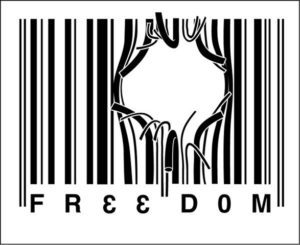Figuring out whether its time to look for another job is about more than how you’re treated as an employee and whether you’re acquiring valuable skills. Being appreciated and becoming more capable are important, but they’re not the whole story.
Whether your work is “the right fit for you” is also about whether the product or service your work is producing is making life better for those you care about. It’s whether your work gives you the sense of accomplishment and pride that comes from making the kind of difference in the world that you want to make.
If your work isn’t providing that, it’s not giving you enough.
 Too many of us park our values at the door when we go to work. By doing so, we never access the deep-seated motivation that comes from contributing (even in a small way) to something larger than ourselves. This kind of positive energy not only carries us over the humps in the workday, it also produces an afterglow that extends into our lives after work.
Too many of us park our values at the door when we go to work. By doing so, we never access the deep-seated motivation that comes from contributing (even in a small way) to something larger than ourselves. This kind of positive energy not only carries us over the humps in the workday, it also produces an afterglow that extends into our lives after work.
Spend some time today thinking about the work you do. If it’s providing something you feel is making a positive difference, tap into that value chain more deeply so that your sense of accomplishment is enhanced. Talk to satisfied customers, find ways to collaborate with valued suppliers or company partners in your community. Join fellow workers who are doing the same thing. Expand both your inputs and outputs to experience how the work you’re doing is having an impact in ways that are important to you. However much your company will benefit from this, you will benefit more.
On the other hand, when you look critically at your work, it may be impossible to find “the value proposition.” Our 24/7 consuming economy produces an endless stream of products and services with no thought about whether they actually improve anyone’s life. If you’re taking no more than a paycheck from your work on what amounts to a deadening production line, it’s time for you to find a job that’s also energizing and life affirming.
There are lots of ways to start doing so.
It’s not just thinking about what you’ll be doing tomorrow, but also what you want for yourself long term. (I Am (not) My Job). It’s taking your thoughts and grounding them in concrete plans to get the work that you want to be doing. (Vocational Training). Because we spend much of our waking lives on the job, it’s about getting the most out of our work everyday by preparing for it beforehand and then digesting what happened once the workday is done. (Get Ready for the Work of Your Life Everyday). If your line of work doesn’t justify this kind of time and attention, you should probably be doing something else.
It’s identifying working people you admire, because of what you can learn from them about work. (Neil Armstrong on Work). It’s about surrounding yourself with a supportive community that shares your work ethic (Being Part of Something Bigger Than Yourself) and having wise people who truly care about you when you’re swamped by your limitations and need guidance. (Can There Be Redemption in the Lance Armstrong Tragedy?) As important as anything, it’s about improving your value awareness so you never lose sight of what’s most important to you, either at work or in life. (The presidential candidates provide Different Marching Orders for Work That Makes a Difference).
This conversation is about cross-training for work and for life. Your worklifereward will come when each one is continuously energizing the other.





